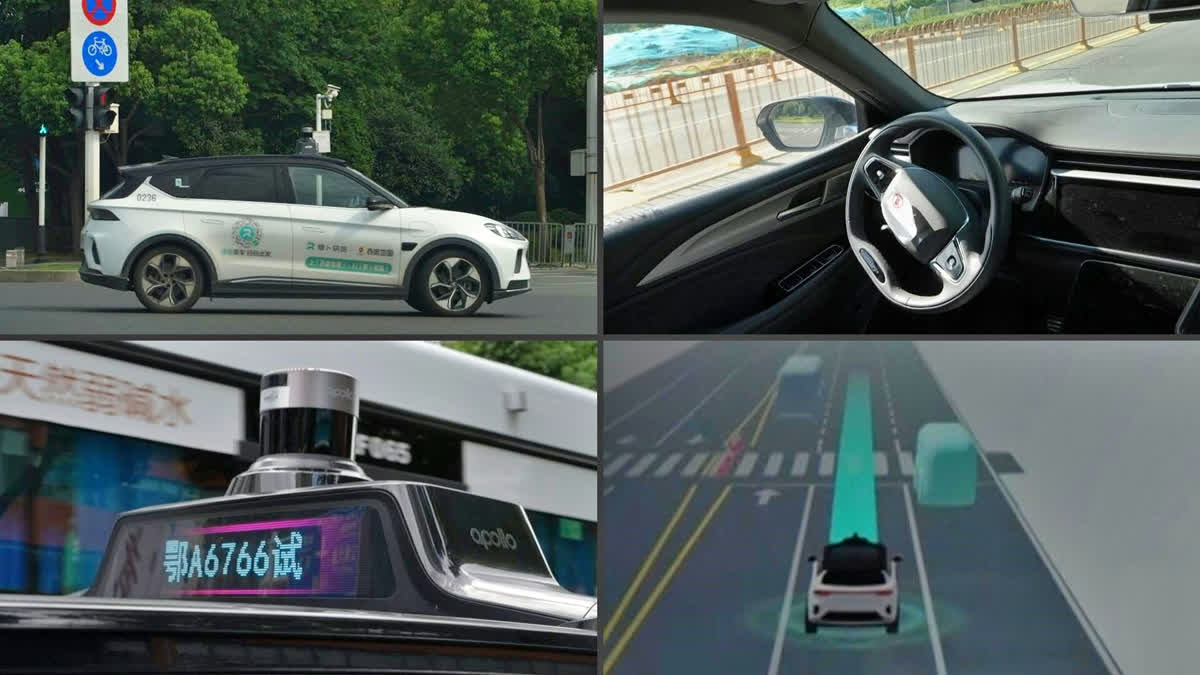Wuhan, China:Turning heads as they cruise past office buildings and malls, driverless taxis are slowly spreading through Chinese cities, prompting both wariness and wonder.
China's tech companies and automakers have poured billions of dollars into self-driving technology in recent years in an effort to catch industry leaders in the United States.
Now the central city of Wuhan boasts one of the world's largest networks of self-driving cars, home to a fleet of over 500 taxis that can be hailed on an app just like regular rides.
At one intersection in an industrial area of Wuhan, AFP reporters saw at least five robotaxis passing each other as they navigated regular traffic.
"It looks kind of magical, like a sci-fi movie," a local surnamed Yang told AFP.
But not everyone shares Yang's awe.
Debate around safety was sparked in April when a Huawei-backed Aito car was involved in a fatal accident, with the company saying its automatic braking system failed.
A minor collision between a jaywalker and a Wuhan robotaxi last month re-ignited concerns.
Taxi drivers and workers in traditional ride-hailing companies have also raised fears of being replaced by artificial intelligence -- although the technology is far from fully developed.
Five to 500
Wuhan's driverless cabs are part of tech giant Baidu's Apollo Go project, which first received licences to operate in the city in 2022.
Initially only five robocars ferried passengers around 13 square kilometres (five square miles) of the city of around 14 million.
Baidu says the taxis now operate in a 3,000 square kilometre patch -- more than a third of the total land area of Wuhan, including a small part of the city centre.
In comparison, US leader Waymo says the largest area it covers is 816 square kilometres, in Arizona.
When a car reaches its pickup point, riders scan a QR code with their phones to unlock the vehicle -- with the front seats blocked off over safety concerns.
The fares are currently heavily discounted, with a thirty-minute ride taken by AFP costing just 39 yuan ($5.43) compared with 64 yuan in a normal taxi.
"They are stealing our rice bowls, so of course we don't like them," Wuhan taxi driver Deng Haibing told AFP, using a popular Chinese term for livelihoods.
